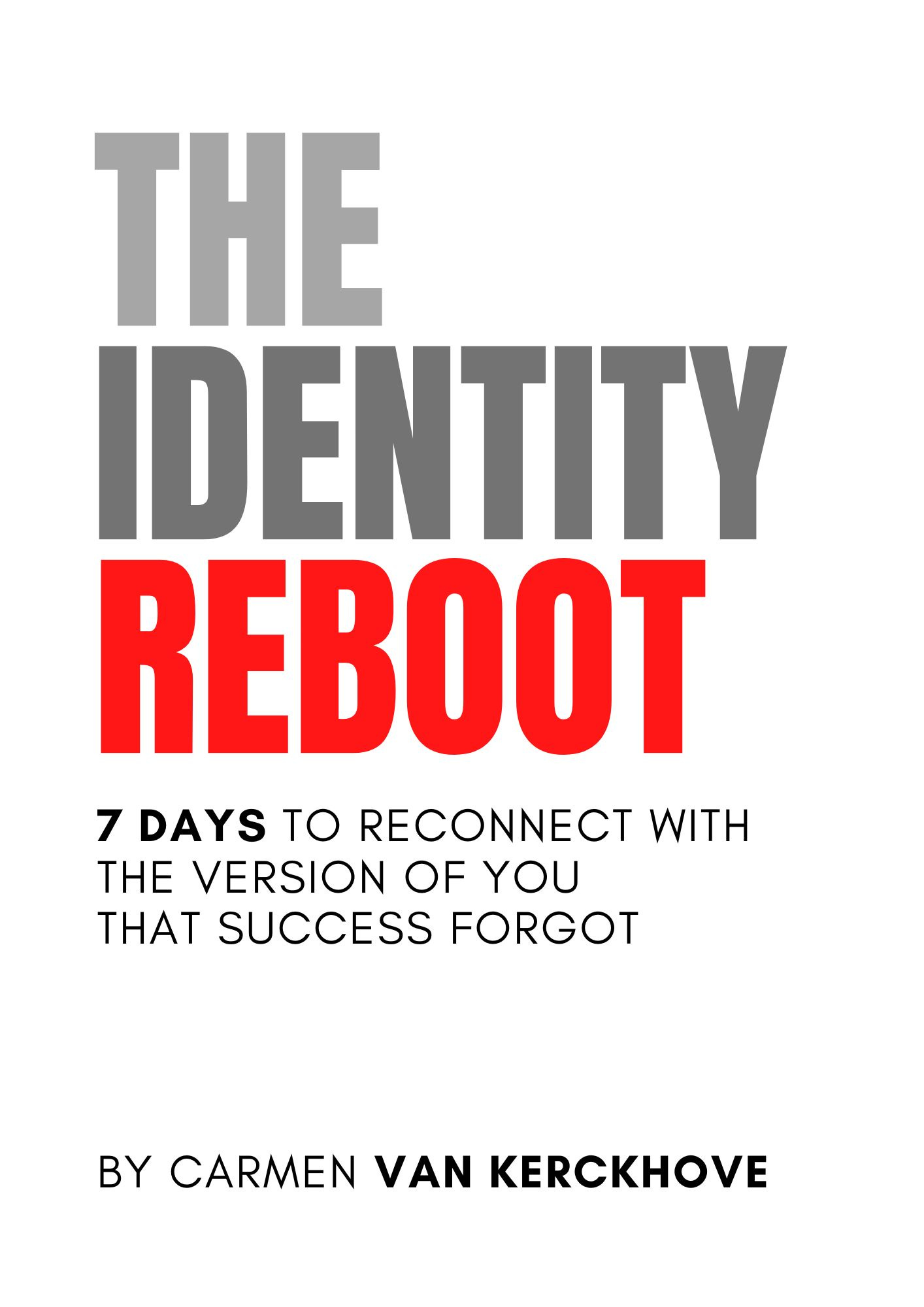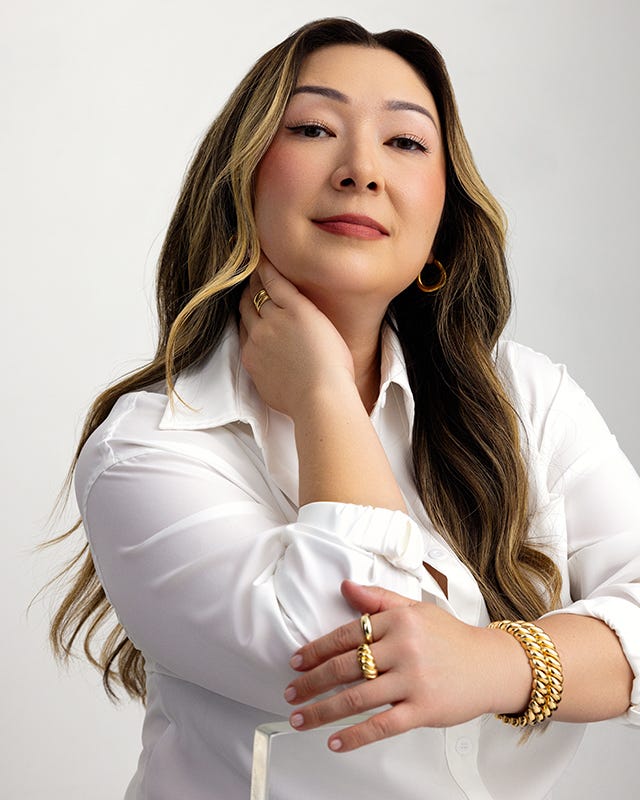You can't future-proof your career by playing yesterday's game
Everyone knows the tournament is over. But no one wants to be the first to leave the court.
Picture this scenario: You're at a gathering where the conversation turns to the economy, job security, and the future of work. Someone mentions how their contractor just bought his wife a Porsche Cayenne. Another person brings up the student debt crisis and how trades offer a debt-free path to middle-class income.
The consensus builds quickly: going into the trades is brilliant. Strategic. Future-forward thinking.
"Honestly, trade school is probably the smartest move right now," someone says. "We need more electricians and fewer consultants."
Nods all around. "My neighbor's a plumber, and he's making bank. Way more job security than most white-collar jobs."
Then comes the question no one actually wants to answer.
"Would you want your own kid to consider trade school?"
And just like that, the air shifts.
The silence stretches a beat too long.
"Well... my daughter is really academically gifted. She's looking at pre-med programs."
"My son has always been college-bound. He's more of a... thinker."
And the room full of people who’d just spent twenty minutes praising the trades quietly reveals the truth:
They believe it’s a great idea… for someone else.
The prescription we give others but never take ourselves
This dynamic fascinates me because it reveals something deeper about how we think about class, status, and success in America. We can intellectually understand that the white-collar ladder is crumbling. We can see the evidence that traditional "prestigious" jobs are becoming less secure while skilled trades are thriving. We can acknowledge that a master electrician might out-earn a marketing manager.
But emotionally? We're still trapped in an outdated status system that says college equals success and trades equal settling.
We're comfortable suggesting other people exit the prestige game. But we're terrified to do it ourselves.
Here's what I think is really happening: most people recognize that the economy is shifting, but they're hoping they can ride out the transition without having to personally recalibrate their relationship to status and success. They want to be right about the trends without having to live through the implications.
But what if that's exactly backwards? What if the people who thrive in the next economy won't be the ones who played the prestige game best, but the ones who learned to walk away from it when it stopped making sense?
If you can't imagine taking a step down, you're not ready for what's coming
I get why this feels so scary. The idea of making a career move that looks like a step down goes against everything we've been taught about forward momentum and professional growth. And let me be clear: this isn't advice for everyone. If you're already struggling to make ends meet, or if you never had access to prestige in the first place, this conversation might not be for you. This is written for the person clinging to status out of fear, not necessity.
But here's what makes this approach different from the usual career advice: I'm not telling you to burn the ships and quit your job to follow your passion. Most of us can't afford to do that. Instead, I'm suggesting something much more practical—a strategic step to something that still pays the bills but gives you space to figure out what's next.
I've lived through what it feels like to make career moves that looked like steps down on paper but turned out to be breakthroughs in disguise. And I think understanding this dynamic isn't just helpful—it's mission critical right now.
I've had the fancy titles. The Ivy League degree. The Goldman Sachs analyst job. The culturally legible markers of success.
But I've also hostessed in restaurants, done office admin work, and managed a neighborhood karate school.
When I became an office manager after failing spectacularly at sales, it didn't just save my job—it gave me something unexpected: predictable hours and mental space. For the first time in years, my brain had space to think. I could leave exactly at 5 PM without anyone batting an eye.
That mental space turned out to be invaluable. I had started a blog called Racialicious, exploring the intersection of race and pop culture. The blog grew into something I never could have predicted—regular TV appearances, speaking engagements, consulting opportunities. That sideways move into an admin role, the one I thought might end my career? It created the space for me to build something entirely new.
Later, when I stepped back from media commentary to help run my husband’s martial arts school, it looked like I was abandoning a prestigious career to manage a small local business. What seemed like a retreat from my media career was actually creating space for different kinds of impact I couldn't have imagined at the time—including launching a family travel content brand, Top Flight Family, which eventually grew to over a million followers across platforms and became my full-time work for nearly a decade.
I didn't predict how those turns would play out. I just knew something wasn't working—and I followed what gave me space, not status.
Now, am I suggesting you become a culture blogger or a travel influencer in 2025? No. It’s not that it’s impossible—but let’s be honest, the peak has passed. I caught early waves in both, and that timing gave me lift that’s much harder to recreate now, no matter how talented you are.
But that's exactly the point: there are always new waves forming. Right now, there are dozens of emerging opportunities and markets that I probably can't even see, but you might be able to because you come with different knowledge and experience. The skill isn't riding my specific waves—it's creating the space to spot and catch the ones that are forming now.
The pattern isn't accidental. Those "downward" moves gave me time, distance, and clarity. They pulled me out of the status spiral long enough to see opportunities that others missed—emerging needs and spaces that didn't even have job descriptions yet.
The space to see what others can't
Here's the thing about stepping away from prestige: it doesn't just change your circumstances. It changes your vision.
When you're not desperately trying to maintain your position in a hierarchy, you can actually see what's happening around you. You notice gaps in the market. You spot emerging trends before they become crowded. You can take creative risks because you're not protecting a reputation.
Right now, we're in the early stages of a massive reordering of how work functions. The jobs that once impressed people might not exist in five years. Meanwhile, new opportunities are emerging faster than our class conditioning can keep up with.
But most people are too prestige-drunk to see clearly. They're so focused on maintaining their position in a hierarchy that's actively crumbling that they miss the chance to build something different.
What becomes possible when you drop the prestige script
This isn't just about trades versus college—that's just one lens through which to view a much bigger shift. It's about developing the emotional flexibility to make choices based on what actually serves your life rather than what looks good to others. And to be honest, skilled trades come with their own risks and tradeoffs. Physical wear, inconsistent hours, and real barriers for entry that we shouldn't romanticize. But right now, they can offer a kind of stability that white-collar work increasingly doesn't.
When you stop equating success with other people's approval, everything opens up. You can take a less impressive job that pays the bills, but gives you the time you need to build something new. You can explore opportunities that don't have clear titles yet. You can consider paths that might seem like steps backward but actually position you for breakthroughs.
The economy that's emerging rewards flexibility, practical skills, and the ability to create value in ways that don't fit traditional categories. The people who thrive won't necessarily be the ones with the most impressive resumes—they'll be the ones who learned to let go of impressive resumes when they stopped being useful.
The courage to change before you have to
The world is changing faster than our status systems can adapt. The prestige markers that guided previous generations might not just be irrelevant—they might be counterproductive.
This isn't about glorifying instability or prescribing struggle for struggle's sake. It's about questioning where real security actually lives now.
So here's what I want you to consider: What career move have you been avoiding because it doesn't look like progress to others? What opportunity have you dismissed because it doesn't fit your image of yourself?
The people who figure this out early—who develop comfort with moves that might look backwards to others—will have a massive advantage. Not because they're settling for less, but because they're positioning themselves to see and seize opportunities that others are too status-conscious to recognize.
Maybe that means considering vocational training. Maybe it means taking a lateral move that creates more time for creative projects. Maybe it means leaving a "good" job to start something that doesn't have a clear title yet.
Some people will make this shift and still be invisible to the status system. No titles. No applause. And yet—they’ll be freer, clearer, and more future-ready than the ones who stayed to defend a collapsing order.
The question isn't whether trade school is right for everyone. The question is whether you’re willing to swap optics for alignment. To take a job with no title, leave one with prestige, or build something no one claps for—yet. Emotional flexibility doesn’t mean abandoning ambition. It means redefining what progress looks like when the map gets redrawn.
Because that flexibility? It's about to become the most valuable skill any of us can develop.
What's one career path you've dismissed as "beneath you" that might actually be smarter than what you're doing now? Are you ready to question your own status assumptions? Share below 👇
A special thank you gift from me to you:
There’s no paywall on any of my writing. Paid subscribers aren’t paying for access—they’re investing in work that resonates.
As a thank-you, you’ll receive a special gift:
The Identity Reboot:
7 Days to Reconnect with the Version of You That Success Forgot
If your sense of self has gotten tangled up in roles, titles, accomplishments—or the pressure to stay impressive—this guide is for you.
This is your reset.
It’s a 7-day PDF experience designed to strip away everything you’ve outgrown, so you can reconnect with what’s real, true, and still yours.
Inside, you’ll:
Uncover who you are beyond the resume, the job title, or the public performance
Identify which parts of your identity feel authentic—and which feel like armor
Rebuild a vision of yourself that isn’t based on productivity, approval, or prestige
This isn’t about starting from scratch. It’s about remembering who you were before the world told you who to be.
If you’ve ever seen yourself in my writing, this is your next step:
And if now’s not the right time?
I’m still glad you’re here.
Bring Carmen to your next event
Carmen Van Kerckhove is a writer and speaker whose work explores how technology intersects with social class and cultural change, reshaping the way we live and work. Her essays challenge conventional wisdom about success, ambition, and identity, offering a provocative lens on what comes next for a generation caught between collapsing systems and emerging possibilities.
Based in New York City, Carmen speaks at keynotes, conferences, leadership summits, and company retreats.
→ For speaking inquiries, contact info@topflightfamilymedia.com. Carmen’s speaker one-sheet is available for download here.






My move from UX to owning a bakery felt both up and down but I’m certainly glad I went for it!
I actually did the trade thing after graduating in 2005; and it’s no panacea; they’ve been increasingly regulating, and adding more hour requirements to every trade.
My experience in the massage industry caused me to quit less than 10 years after training, because it got so expensive to work, it made more sense to do retail management.
The problems that hit higher education (inflated loans, more hours, more licenses, more insurance, more business costs) have been inflating the trades as well. The problems overall need to be addressed in every industry: White Collar or Blue